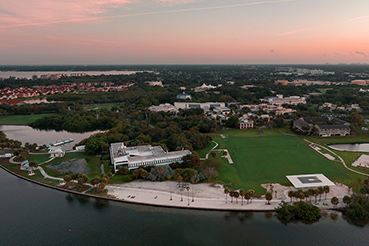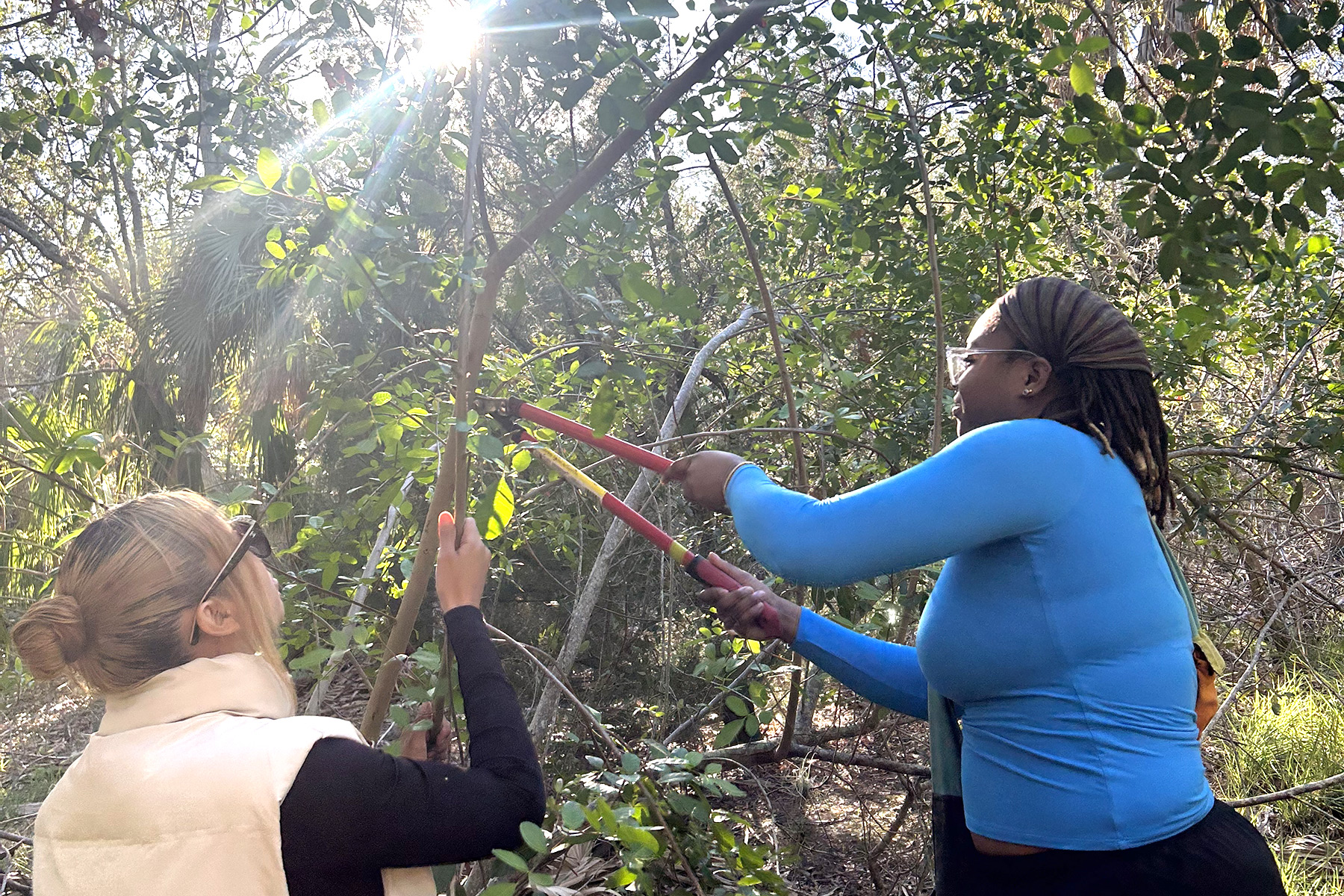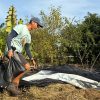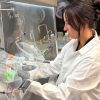“I think Eckerd students feel ownership of this campus, and so they want it to reflect their ideals,” said Professor of Environmental Science and Biology Beth Forys, Ph.D.
Forys is a listed author on nearly 60 research publications whose topics range from the social carrying capacity of oyster mariculture to the effects of roads and land use on frog distributions. She is interested in spatial ecology and endangered species but will do research on any topic that promotes biodiversity—making her the ideal lecturer at Eckerd College’s Nov. 22 Brazilian Pepper-Pull Competition, where she taught students about an invasive plant species.
Brazilian peppertrees are invasive to Florida, out-competing native plants, providing no nutritional value or being toxic to certain wildlife and growing quickly.
The Eckerd College Organization of Students Environmental Responsibility Committee organized the event to teach students about this aggressive species, which was introduced to Florida as an ornamental plant in the mid-1800s. Now it’s illegal to sell or plant it in Florida, Forys said.
The first half hour of the event consisted of her lecture in the Sheen Auditorium, where Forys explained the biological and ecological impacts of the plant, how to identify it and how to properly remove it. She provided each student with a small Brazilian pepper to examine its appearance, ensuring they could identify it outside.
Due to its rapid growth and the allelopathic properties of its leaves and berries, pulling even a small amount of the plant is beneficial. Forys defined “allelopathic properties” to mean that when the leaves or berries are ground up or put in soil, they emit chemicals that can suppress the growth of other plants.
Regardless of your majors, Forys said, Eckerd students are often environmentally minded. Our removal of harmful invasive plants, she explained, will help our campus become more valuable for wildlife, and biodiversity will be enhanced.
After the lecture, students gained hands-on experience in removing this invasive species, with an additional goal of seeing who could harvest the most plants. Provided with gloves, buckets, hedge clippers and shovels, students explored campus and pulled as many Brazilian pepper plants as they could in an hour.
Once the mounds of Brazilian pepper were collected, Tyler Cribbs ’16, Ph.D., a visiting assistant professor of environmental studies, loaded up a truck bed and drove it to the brush site.
Natalie Gransky, co-director for ECOS ERC’s big events and a sophomore animal studies student from Natick, Massachusetts, helped organize the competition with faculty, aiming to raise awareness of invasive species but specifically Brazilian pepper, she said. The lecture was to provide an educational aspect, prior to the hands-on experience, Natalie added.
“It’s really important to give back to our campus and give back to the natural environment, and it’s a fun way to help out and learn more,” she said, urging students of any major to get involved with events like this.

The Environmental Responsibility Committee organized the event to teach students about the invasive species.
Kurstin Turner, a first-year international business and marketing student from Surprise, Arizona, didn’t know anything about Brazilian pepper prior to this event and was surprised to learn how quickly the plant can grow and how it negatively impacts native species.
Being used to the dry, sandy nature of Arizona, Kurstin emphasized the “greenness” of campus and said this event would help continue that by providing a better environment for native plants to thrive.
Not only was the competition environmentally beneficial, but it allowed students to connect with one another, creating a tighter-knit community. Kurstin enjoyed meeting new people from around the country and hearing their various perspectives on different landscapes and environmental issues.
She said she enjoyed how she and her fellow students could “come together for one cause.”
After the students collected huge piles of Brazilian pepper, primarily from the Palm Hammock but also from other sections of campus, they earned prizes such as a hat, flag and stickers.
Lauren Conneally, a senior environmental studies student from Saratoga, New York, was involved in the marketing of this event and said the turnout for this year’s pepper-pulling was larger than last year’s.
As a certified Tree Campus USA, Eckerd is recognized for effectively managing its trees and engaging students in utilizing service learning opportunities that focus on campus, community, and forestry efforts. Pulling Brazilian pepper, Forys said, is a great way to show we are making our campus better, maintaining this status.
To learn more about the initiatives of ECOS ERC, you may visit the committee’s Instagram page.















